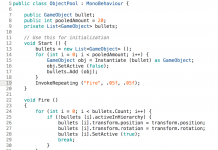A growing number of investors are shifting away from the traditional venture capital model of rapid growth and exit, instead focusing on acquiring undervalued, stagnant tech companies—dubbed “venture zombies”—with the intention of holding them indefinitely for sustained profits. This trend, exemplified by companies like Bending Spoons and Curious, represents a fundamental change in how software businesses are approached.
The Rise of the “Hold Forever” Model
Bending Spoons, an Italian company, recently quadrupled its valuation to $11 billion after acquiring AOL and raising $270 million. Its success mirrors a pattern of acquiring underperforming brands (Evernote, Meetup, Vimeo), streamlining operations through cost-cutting and price adjustments, and then making them profitable. Unlike private equity firms which typically flip assets for short-term gains, Bending Spoons plans to hold these businesses permanently.
This strategy is driven by the realization that the venture capital landscape produces many viable, if not explosive, companies. According to Andrew Dumont, founder of Curious, “The venture power law… produces many great businesses, even if they’re not unicorns.” These “great businesses” can be acquired cheaply and quickly revitalized for substantial cash flow.
How It Works: Buy, Fix, Hold
The core principle is simple: identify companies that have stalled and no longer attract further investment, acquire them at a low price (sometimes as low as 1x annual revenue), and aggressively improve their profitability. Curious, for example, recently purchased UserVoice, a 17-year-old startup that had failed to secure additional VC funding.
The key to rapid profitability lies in operational efficiency. By centralizing functions like sales, marketing, and finance across multiple portfolio companies, these investors achieve profit margins of 20-30% almost immediately. This approach contrasts sharply with the VC-driven focus on unsustainable growth at all costs.
Why This Matters
This shift is happening because the pace of innovation—particularly in AI—is making older software businesses obsolete faster. Venture capital firms prioritize hyper-growth and exits, often ignoring the potential of stable, profitable companies that don’t fit their aggressive models. This creates an opportunity for investors willing to take a different approach.
“Investors don’t care about earnings; they only care about growth… there’s no incentive to operate with that level of profitability.”
– Andrew Dumont, Curious
The cash generated from these acquisitions is then reinvested into acquiring more “zombie” startups, creating a self-sustaining cycle. Curious plans to buy 50 to 75 such companies in the next five years, targeting those generating $1 million to $5 million in annual recurring revenue—a segment often overlooked by traditional private equity.
The Long View
The “buy, fix, and hold” strategy is not without its challenges. It requires significant operational expertise and discipline. However, as the venture capital landscape becomes more competitive and AI disrupts existing business models, this approach offers a viable alternative for investors seeking long-term, sustainable profitability. The emergence of these “zombie” hunters signals a growing divergence from the traditional VC playbook.




































































